Mediaroom
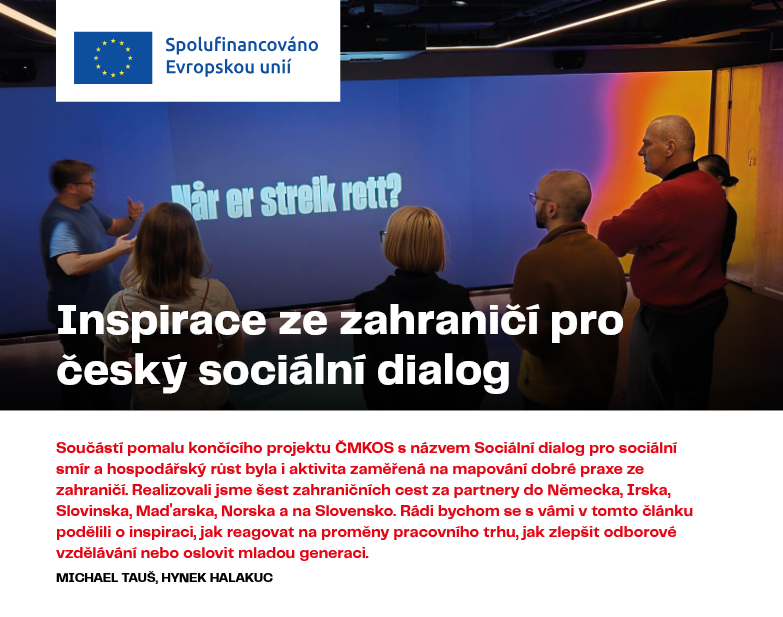
Sondy Revue: Cooperation of CELSI with KOZ SR highlighted s an example of the important connection between trade unions and the academic-analytical world
The latest issue of Sondy Revue – a Czech magazine about the world of workhig - hlights the cooperation between the Slovak trade union confederation KOZ SR and the Central European Labour Studies Institute (CELSI) as an example of the important connection between trade unions and the academic-analytical world.
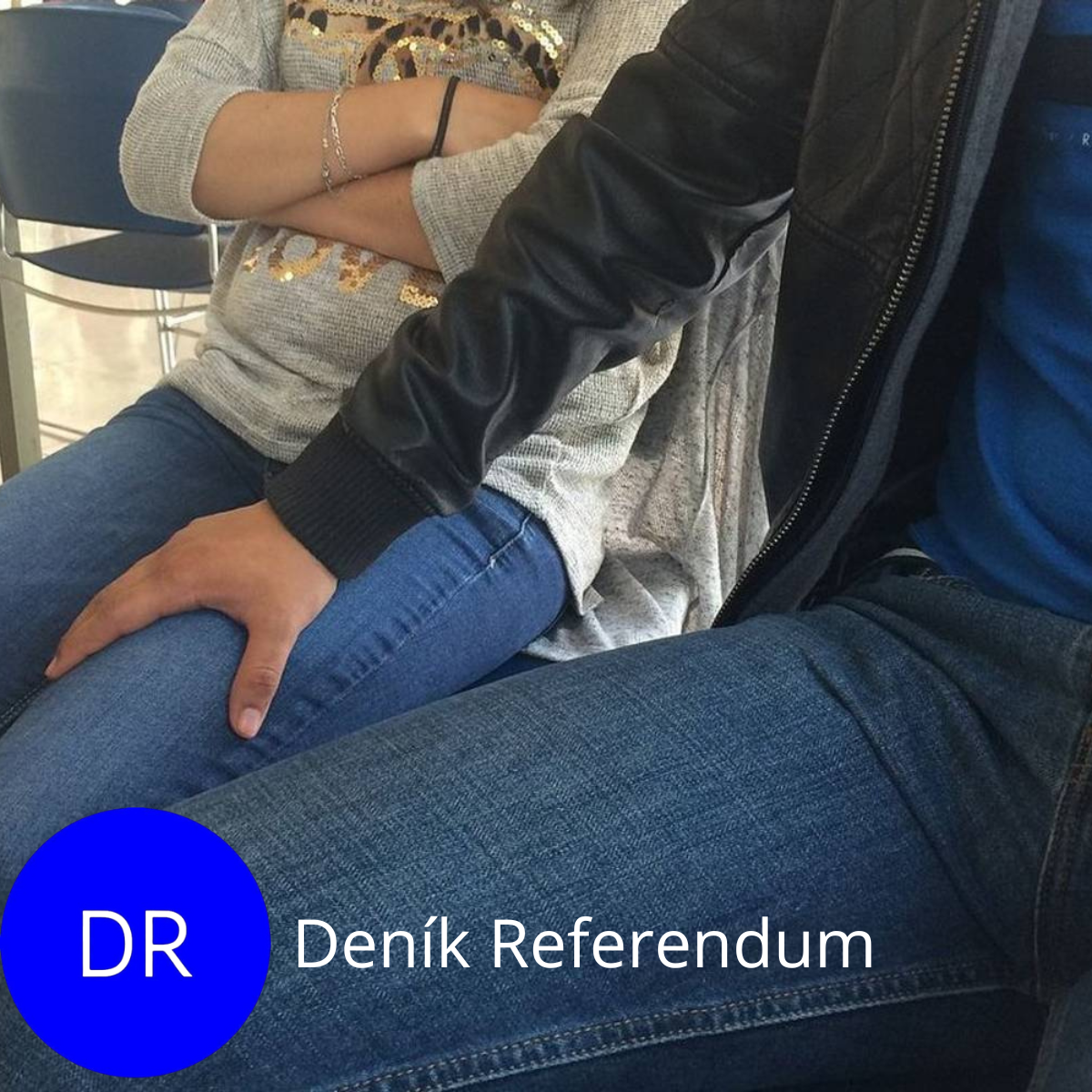
Denník Referendum: Šárka Homfray Writes About CELSI's Research on Workplace Sexual Harassment
In an article for the Czech news outlet Deník Referendum, Šárka Homfray writes about a study on workplace sexual harassment conducted by the Central European Labour Studies Institute (CELSI) in cooperation with its partners and under the auspices of the Friedrich-Ebert-Stiftung.

Aktuality.sk, interview: Martin Kahanec on Slovakia’s economic situation
CELSI Scientific Director Martin Kahanec spoke to Aktuality.sk about Slovakia’s economic situation, support for science and research, and his new advisory role with the European Commission

Press Release: CELSI Founder and Director Martin Kahanec Appointed Chief Scientific Advisor to the European Commission
As the first Slovak in this prestigious position, CELSI’s founder and director Martin Kahanec has been appointed to the Group of Chief Scientific Advisors (GCSA) to the European Commisssion.
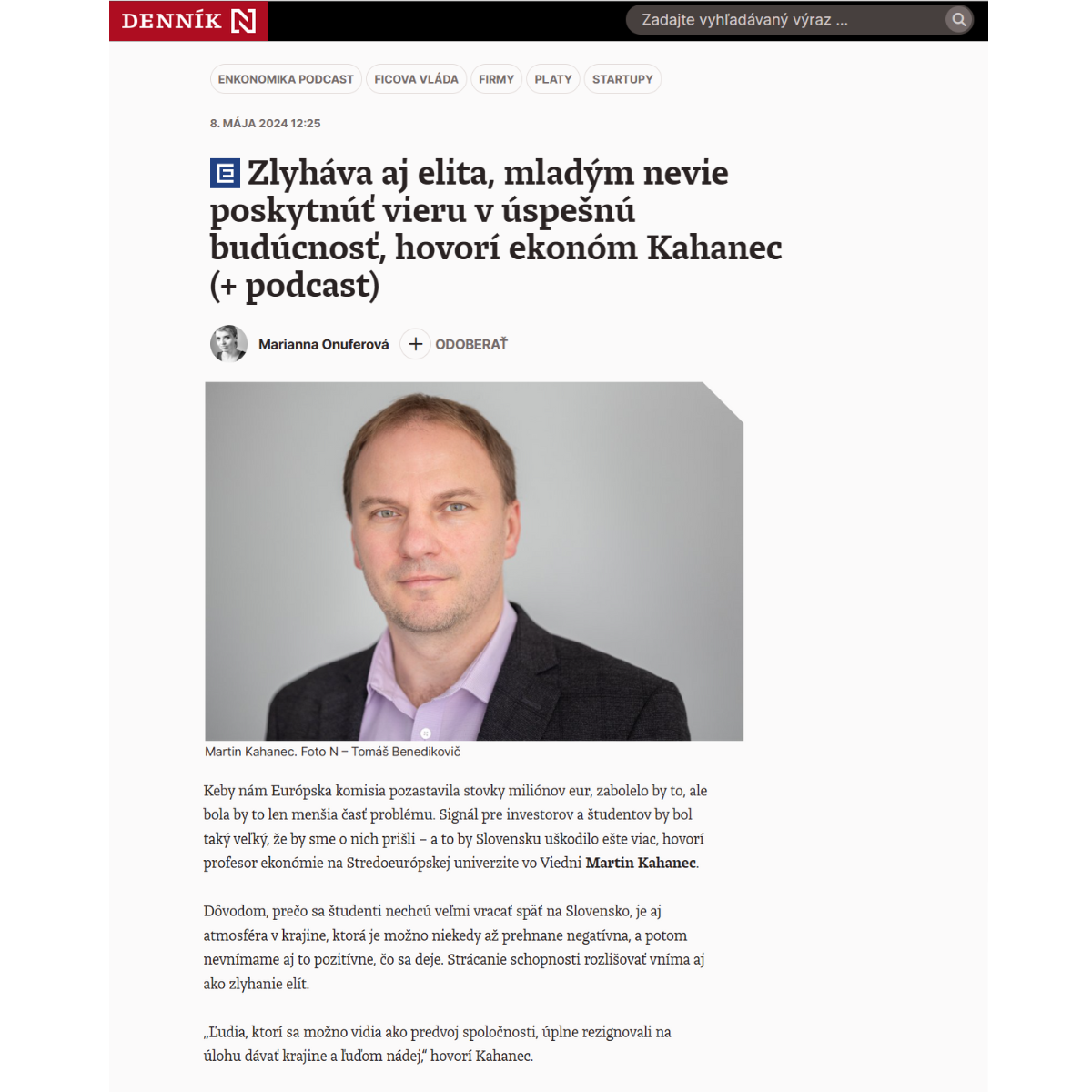
Interview with CELSI Co-founder Martin Kahanec Nominated for the 2024 Slovak Journalism Award
In the category of “Economic Contribution (Written Journalism),” Marianna Onuferová (Denník N) has been nominated for her interview with Martin Kahanec titled: “The elites have completely resigned from their role of giving the country and people hope, says economist Kahanec.”

Denník E: Kahanec on how should the government support Slovak industry during trade wars
CELSI Director Martin Kahanec in the Expert Panel of Denník E: How should the government support Slovak industry during trade wars?
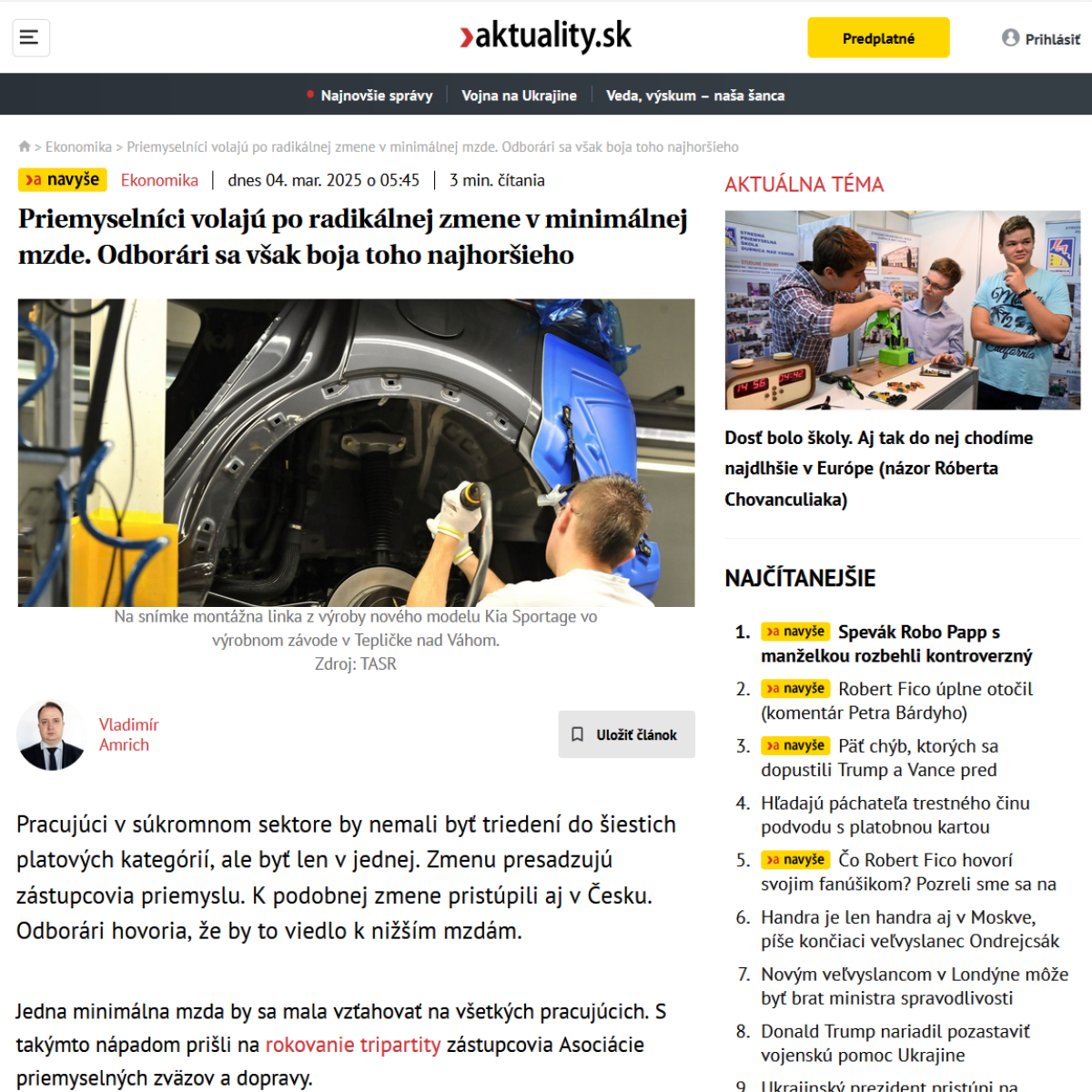
Aktuality.sk: CELSI Experts Marta Kahancová and Monika Martišková assessed proposed minimum wage changes in Slovakia
CELSI Experts Marta Kahancová and Monika Martišková assessed proposed minimum wage changes and their impact on collective bargaining for Aktuality.sk
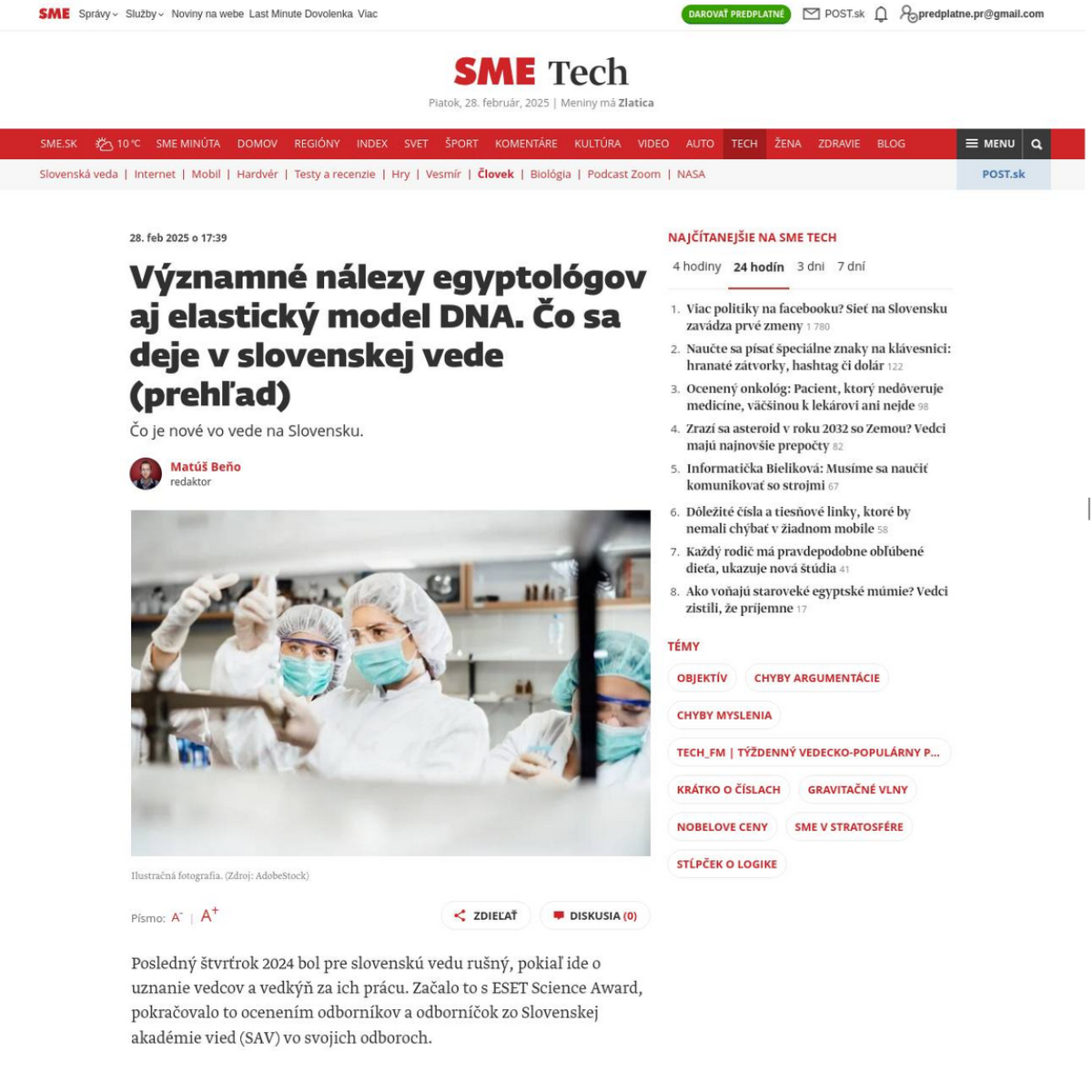
SME Daily: Kahanec in the Leadership of Academia Europaea Among the Major Achievements of Slovak Science
SME Daily has ranked Martin Kahanec’s election to the leadership of Academia Europaea among the significant achievements of Slovak science.

The Slovak Spectator: Martin Kahanec highlighted as one of Slovakia's most recognised scientists in 2024
The Slovak Spectator recently highlighted Slovakia's leading scientists of 2024, featuring Martin Kahanec, the Scientific Director of CELSI.
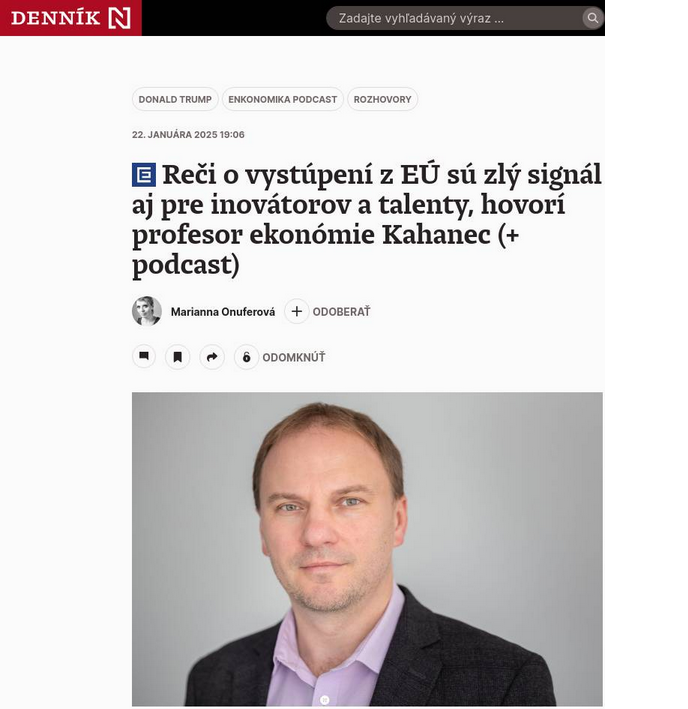
Denník N, podcast: CELSI Scientific Director Kahanec on Trump, Tariffs, Leaving the EU, and Slovak Higher Education
Martin Kahanec, co-founder and scientific director of the Central European Labour Studies Institute (CELSI), spoke with Marianna Onuferová for Denník N about expectations for the new U.S. president, Donald Trump, how his new tariffs might impact Slovak industry, the poor state of Slovakia's economy, the devastating consequences of leaving the EU, as well as the failures of elites who perpetuate narratives of failure and despair.